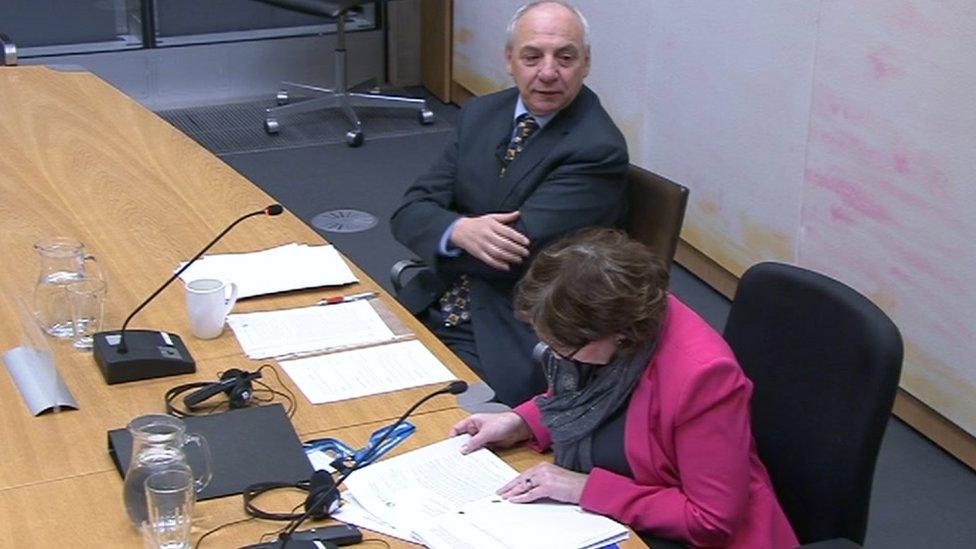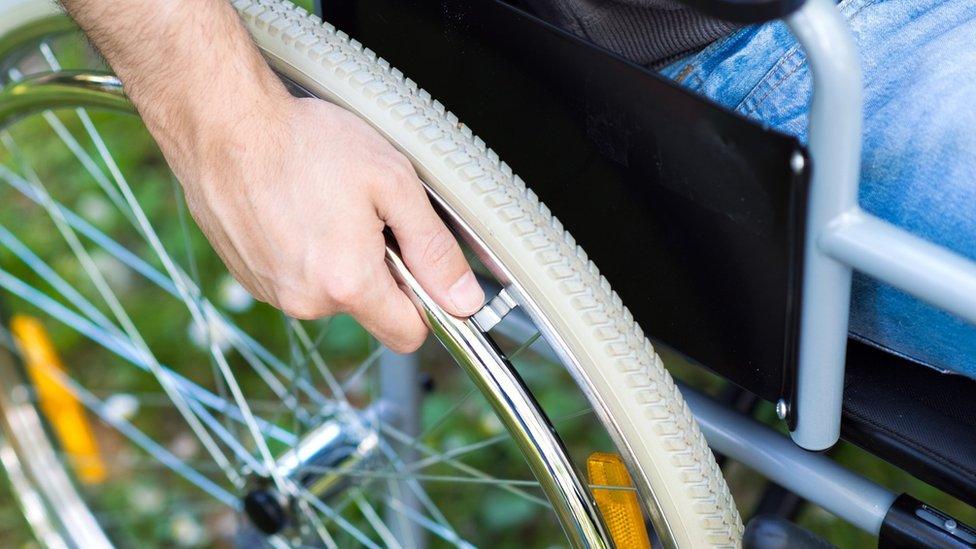Disabled grant reform in Wales bound to be unpopular, says Labour AM
- Published

Mike Hedges said two-tier systems are not abnormal in the public sector.
A Labour AM says the way the Welsh Government has changed support for disabled people was "bound to be unpopular"
Mike Hedges has questioned the logic for removing the Welsh Independent Living Grant (WILG).
Funding and support for around 1,300 severely disabled people is being transferred to councils
Social care minister Huw Irranca-Davies has said the change will remove a "two-tier system".
But Mike Hedges says two-tier arrangements are "not abnormal" in the public sector.
"People have preserved rights," he said. "Why couldn't they have kept preserved rights for those who are currently getting it and then treat new people differently?
"Preserved rights is well known.
"But taking things off people who've got used to it is bound to be unpopular."
Cecilia Kenny saw her total one-to-one support reduced from 68 hours per week to 41 by the council
Responding to data from the Welsh Government that shows 54% of former WILG recipients have agreed new support packages with councils, Mr Hedges said: "54% agreed means almost half haven't, and we don't know how many of that 54% signed under duress."
He was speaking at a meeting of the assembly's petitions committee which is scrutinising the changes following a campaign from WILG recipient Nathan Lee Davies to reinstate the benefit.
The WILG was paid to people in Wales who used to receive the UK-wide Independent Living Fund (ILF).
In a letter to the committee Mr Irranca-Davies said it was hard to see how WILG could be reinstated without creating "turmoil" for people who have completed the transition to council support.
Welsh Labour leader elect Mark Drakeford has said he would reconsider the move if there is evidence people are losing out.
- Published26 October 2018
